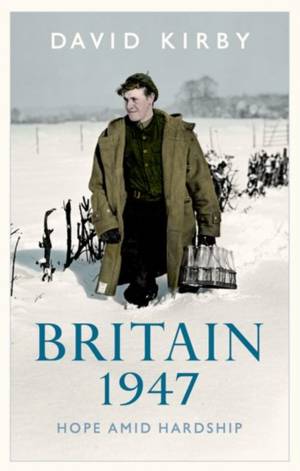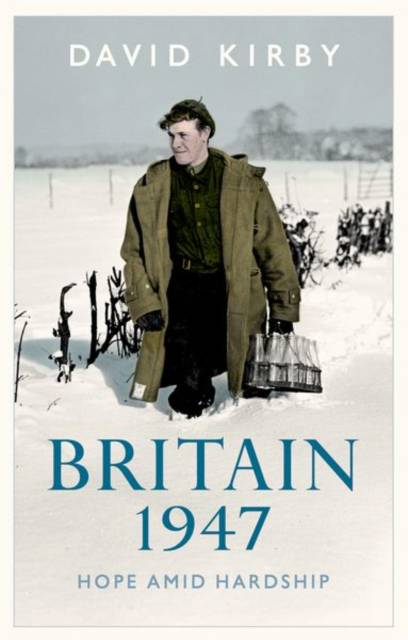
- Afhalen na 1 uur in een winkel met voorraad
- Gratis thuislevering in België vanaf € 30
- Ruim aanbod met 7 miljoen producten
- Afhalen na 1 uur in een winkel met voorraad
- Gratis thuislevering in België vanaf € 30
- Ruim aanbod met 7 miljoen producten
Zoeken
Omschrijving
For the British people, 1947 was a momentous year. For three long months, they endured the worst winter in living memory, with drastic fuel shortages and power cuts, and continuing food rationing post-World War Two. Heavy snow gave way to widespread flooding in the spring, and by the summer, the economic crisis had deepened, forcing renewed cutbacks; the Chancellor of the Exchequer even imposed a savage tax increase on tobacco, the chief solace for much of the nation. But against this backdrop, a program of ambitious and far-reaching reforms was being rolled out, from town and country planning to the institution of the National Health Service. Amid the misery of freezing homes, meagre food supplies and threadbare clothing, the British were on the brink of a new era of social transformation--the beginnings of the "Welfare State." Drawing upon an extensive range of local newspapers, contemporary articles, films and the archives of the Mass Observation Project, Britain, 1947 reveals how ordinary people in town halls, hospitals, schools and dance halls, on the terraces of the local football club, at the pub and in homes across Britain, navigated, survived and found hope in the turbulent world of the 1940s.
Specificaties
Betrokkenen
- Auteur(s):
- Uitgeverij:
Inhoud
- Aantal bladzijden:
- 400
- Taal:
- Engels
Eigenschappen
- Productcode (EAN):
- 9781911723219
- Verschijningsdatum:
- 15/08/2024
- Uitvoering:
- Hardcover
- Formaat:
- Genaaid
- Afmetingen:
- 149 mm x 216 mm
- Gewicht:
- 607 g

Alleen bij Standaard Boekhandel
+ 96 punten op je klantenkaart van Standaard Boekhandel
Beoordelingen
We publiceren alleen reviews die voldoen aan de voorwaarden voor reviews. Bekijk onze voorwaarden voor reviews.











